Palm oil is a popular ingredient in many recipes, from baked goods to savory dishes.
It adds flavor and texture to recipes, making it an essential part of many cooking styles.
However, palm oil can be difficult to find and expensive.
Fortunately, there are plenty of substitutes that can provide the same taste and texture without breaking the bank.
In this article, I’ll discuss eight of the best substitutes for palm oil so you can enjoy your favorite recipes without worrying about cost or availability.
What is Palm Oil?
Palm oil is a type of vegetable oil derived from the pulp of the fruit of the African palm tree.
It’s naturally reddish in color due to its high content of carotenoids, and it has a mild flavor that works well with many dishes.
This versatile oil has been used for centuries in many parts of Africa as both a cooking ingredient and an energy source.
Today, it’s one of the most widely-used edible oils around the world due to its versatility and affordability.
Palm oil is packed with nutrients which make it ideal for a variety of uses such as baking, frying, sautéing or adding flavor to your favorite recipes.
When shopping for palm oil look out for sustainably sourced brands that have been certified by organizations such as Rainforest Alliance or Roundtable on Sustainable Palm Oil (RSPO).
This ensures you are getting quality products while supporting sustainable harvesting practices.
The 8 Best Substitutes For Palm Oil
Palm oil is a popular cooking and baking ingredient, but it can be difficult to find in some areas.
Fortunately, there are several substitutes for palm oil that can still give you the desired flavor and texture.
Here are eight of the best alternatives for palm oil:
1 – Rapeseed Oil (Canola oil)

Canola oil is a great alternative to palm oil, not only because it is more widely available and affordable but also because it has many health benefits.
Canola oil contains the least amount of saturated fat compared to other vegetable oils.
It is also rich in monounsaturated fats and omega-3 fatty acids, which can help lower cholesterol levels. In addition, its mild flavor makes it an excellent choice for baking and cooking savory dishes.
It’s important to note that Canola oil has a relatively low smoke point (around 400°F) so it should be used at lower temperatures than palm oil (which has a smoke point of 450°F).
However, if you’re looking for an easy alternative that won’t break the bank or alter the taste of your recipes too much, Canola oil is definitely worth considering.
2 – Sunflower Oil

Sunflower oil is a great alternative to palm oil. It’s not only more affordable and easier to find, but it also has less saturated fat than some other types of cooking oils.
It also adds a mild nutty flavor to recipes, making it an attractive option for baking or sautéing vegetables.
Sunflower oil is rich in Vitamin E which helps protect the body from free radical damage, so you can feel good about using it in your cooking!
Unlike many other cooking oils, sunflower oil has a high smoke point which makes it ideal for frying and stir-frying dishes at higher temperatures.
It’s also low in polyunsaturated fats that are prone to oxidation, so you don’t have to worry about spoiling your food quickly when using this type of oil.
Overall, sunflower oil is an excellent substitute for palm oil as its nutritional benefits outweigh any potential drawbacks.
Its mild flavor and versatility make it suitable for different types of cuisine while its affordability makes it easy on the wallet!
3 – Vegetable Margarine
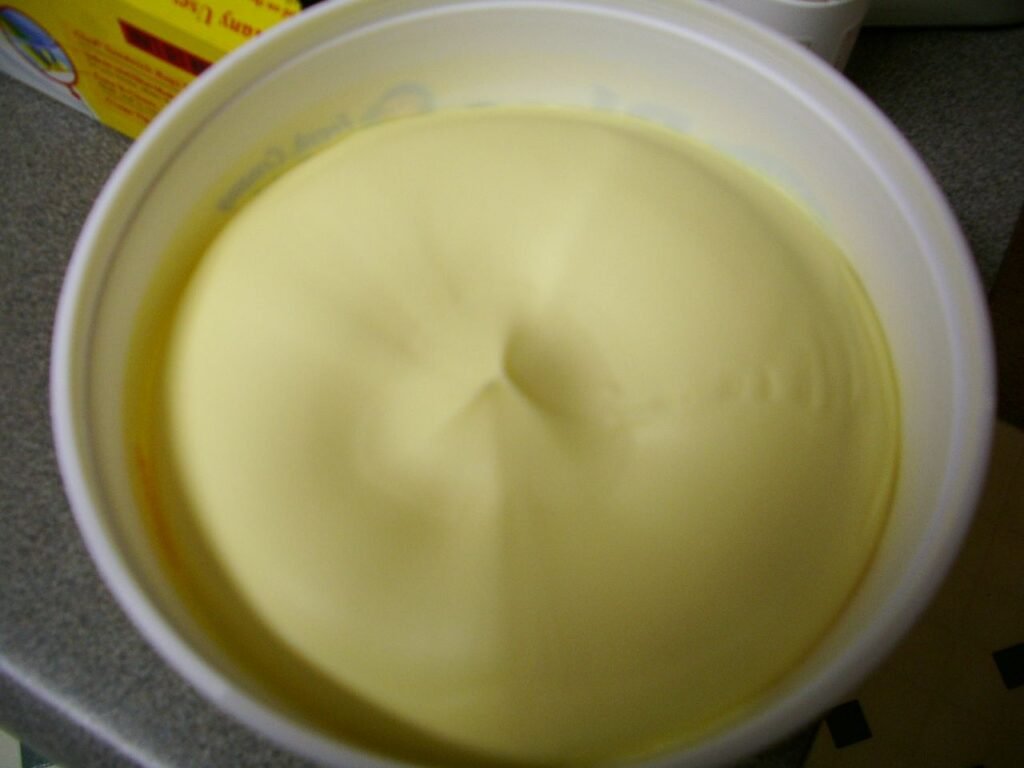
Vegetable margarine is a great substitute for palm oil in recipes.
It has all the same properties as regular vegetable oil, but it’s made with plant-based fats and other ingredients like emulsifiers, which make it much more stable than traditional oils.
It’s also ideal for baking because of its higher melting point compared to butter or lard, meaning that your cakes and cookies won’t turn out soggy!
And because of its creamy texture, vegetable margarine can be used to create deliciously fluffy pastries and desserts.
It has a mild flavor so it won’t overwhelm the taste of other ingredients in your recipe, making it an excellent choice to replace palm oil without sacrificing flavor.
Plus, since vegetable margarine contains no trans fats and is usually cholesterol-free, you don’t have to worry about health risks associated with using vegetable oils when cooking or baking.
4 – Coconut Oil
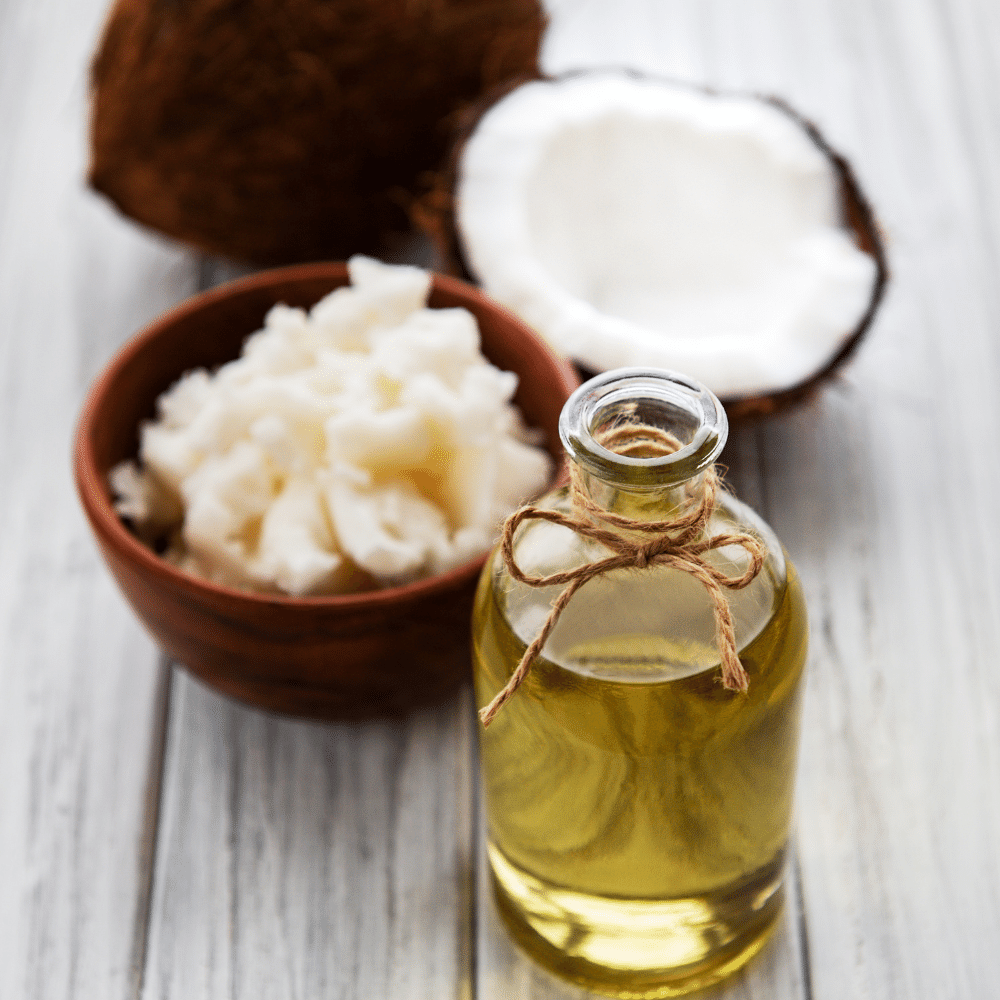
Coconut oil is a great substitute for palm oil, as it has a similar texture and flavor profile.
It is rich in healthy fatty acids like lauric acid, making it an excellent addition to many dishes.
Coconut oil is also more widely available than palm oil and tends to be less expensive.
Additionally, it’s vegan-friendly and doesn’t require any special preparation before using.
Coconut oil can easily be used in baking recipes like cakes or cookies, added to curries or stir-fries for extra flavor, or even substituted for butter on toast for a healthier alternative!
5 – Olive Oil
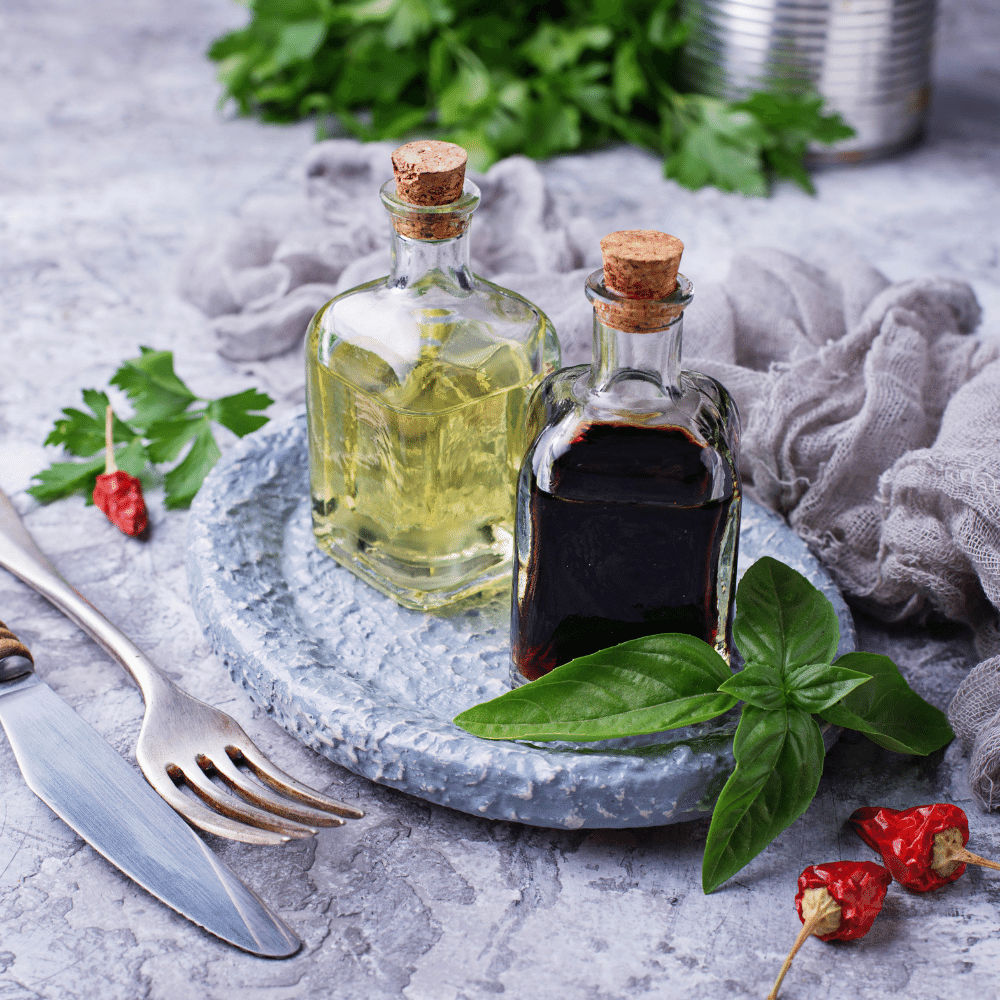
Olive oil has a mild flavor that won’t overpower other ingredients and provides the same texture as palm oil when cooked.
Olive oil also contains healthy fats, such as monounsaturated fats, which can help reduce cholesterol levels and prevent heart disease.
Olive oil comes in many varieties, from extra-virgin to light olive oils.
Extra-virgin olive oils have more antioxidants than other types of olive oils and are best used for dressings or dips, while light olive oils are better suited for frying or baking since they have a higher smoke point than regular olive oils.
When using olive oil instead of palm oil in recipes, you may need to adjust the amount used since it has different properties than palm oil does.
Generally speaking, you will want to use two-thirds of the amount called for with palm oil when substituting with olive oil.
6 – Avocado Oil
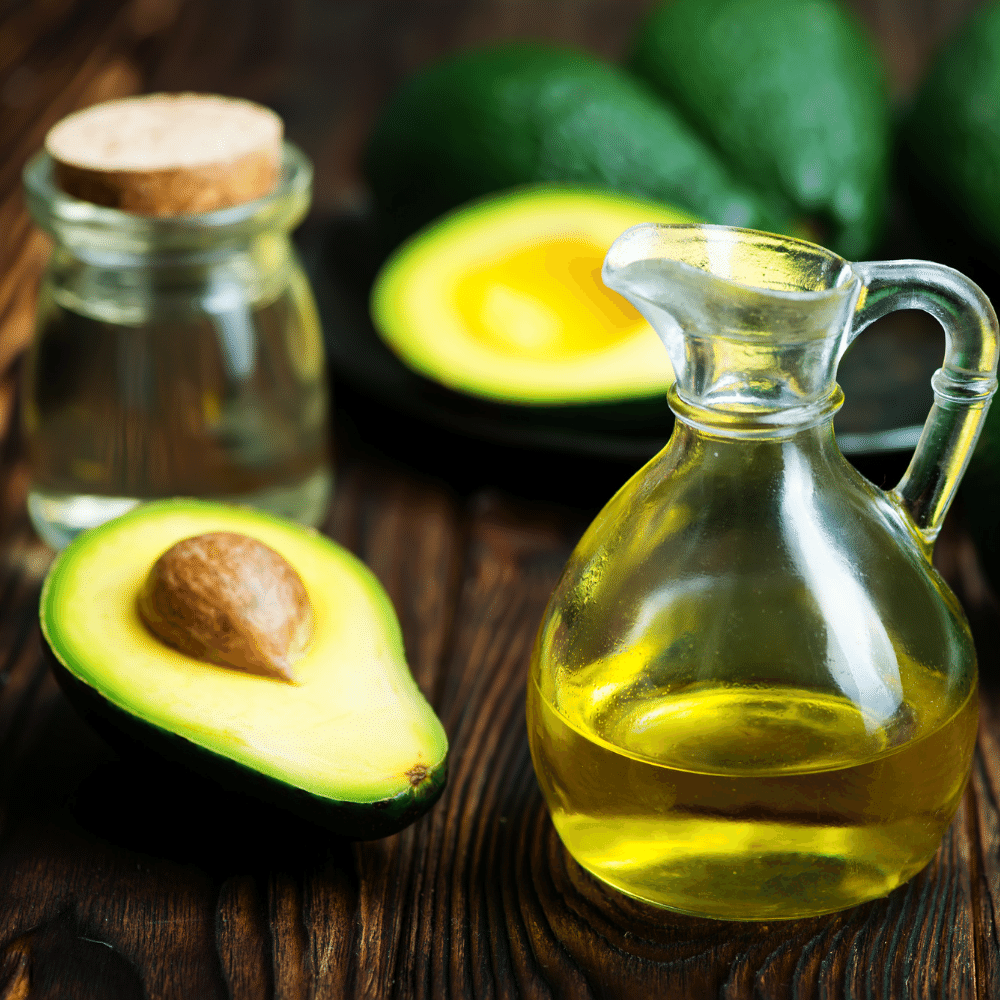
Avocado oil is a versatile and healthy cooking oil made from the pulp of avocados.
It has a high smoke point, meaning that it won’t break down when heated for long periods of time.
This makes it an excellent choice for baking, roasting, sautéing, and stir-frying at higher temperatures.
Avocado oil also has numerous health benefits: it’s rich in monounsaturated fats that help reduce cholesterol levels; contains a variety of antioxidants to protect against free radical damage; and is packed with vitamins A, D, E and K.
Avocado oil makes an excellent substitute for palm oil because of its similar flavor profile. Both oils are semisolid at room temperature due to their high saturated fat content (palm oil is slightly higher).
They both have a mild taste with little or no aftertaste—although avocado oil may be slightly nuttier than palm oil—and can be used interchangeably in most recipes calling for palm or vegetable oils.
Additionally, avocado oil is healthier than palm as mentioned above since it has more beneficial fatty acids like oleic acid which helps reduce inflammation in the body.
7 – Soybean Oil

Soybean oil is a vegetable oil that is made from the seeds of soybeans.
It has a light yellow color and an earthy aroma, and it’s often used in cooking due to its high smoke point (450°F).
One of the main advantages of using soybean oil for cooking is that it does not contain any trans fats.
In terms of flavor, soybean oil is quite neutral with very subtle nutty notes.
This makes it a great choice for deep-frying as it doesn’t alter the taste or smell of food being cooked. It’s also one of the most economical oils available in stores – making it a popular option for those on tight budgets.
Moreover, soybean oil can be used interchangeably with palm oil when cooking as they both have similar smoke points and flavors.
Furthermore, both these oils are stable at room temperature which makes them easy to store without having to worry about spoilage or going rancid quickly like some other plant-based oils do.
Finally, soybean oil is rich in healthy omega-3 fatty acids, making it a healthier choice for those looking to reduce their cholesterol levels.
8 – Flaxseed Oil
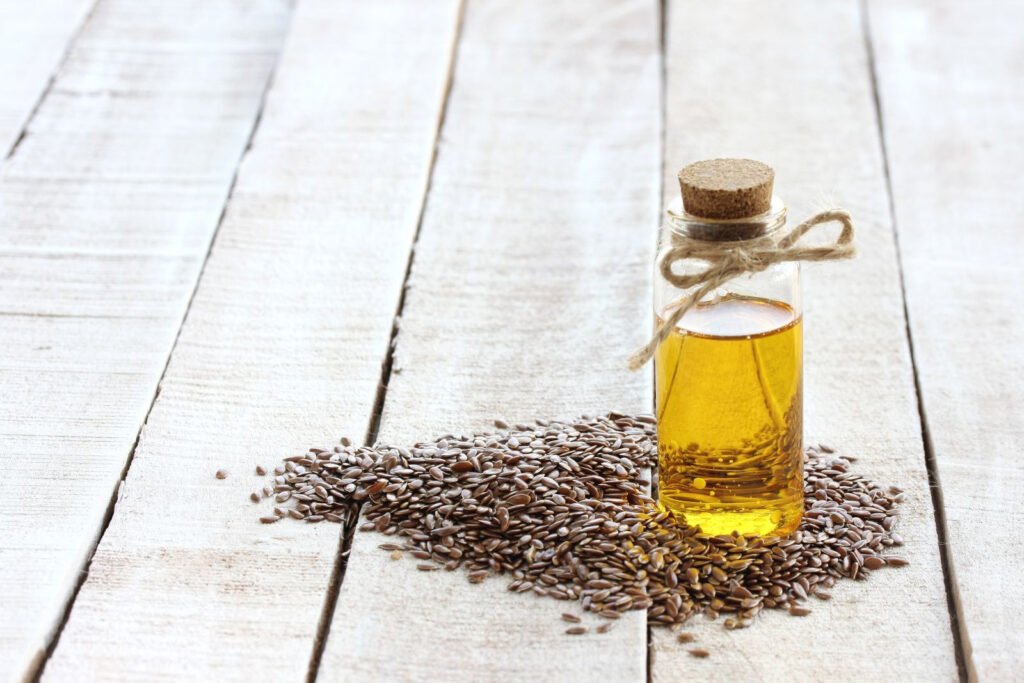
Flaxseed oil is an edible vegetable oil derived from the seeds of the flax plant.
It has a mild, nutty flavor and is rich in omega-3 fatty acids, making it highly sought after for its nutritional benefits.
In terms of cooking, flaxseed oil can be used as a salad dressing or drizzled over cooked dishes to add extra flavor and nutrition.
It should not be heated to high temperatures because it oxidizes easily at those temperatures, causing off flavors and potentially harmful compounds to form.
Palm oil can also be used interchangeably with flaxseed oil since they both contain similar amounts of saturated fat.
They both have higher smoke points so are good for deep-frying or sautéing but should not be used for baking because their taste will overpower other ingredients in baked goods.
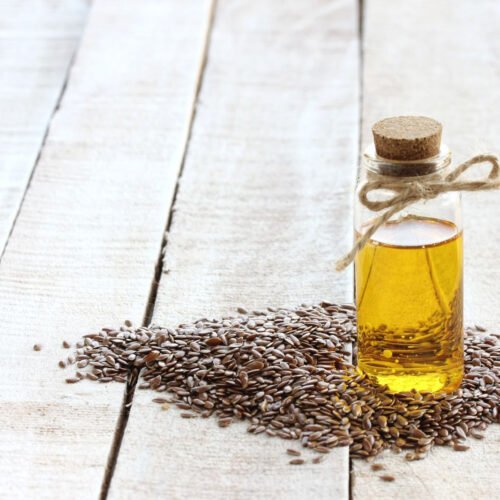
The 8 Best Substitutes For Palm Oil
Ingredients
- Rapeseed Oil (Canola oil)
- Sunflower Oil
- Vegetable Margarine
- Coconut Oil
- Olive Oil
- Avocado Oil
- Soybean Oil
- Flaxseed Oil
Instructions
- Pick your favorite substitute from the list above.
- Follow cooking directions for your selected substitute with the proper ratio of ingredients.
Hi, I'm Benjamin. I love cooking, long walks, and my girlfriend! Here you’ll find simple and delicious recipes that you can make in 30 minutes or less.

